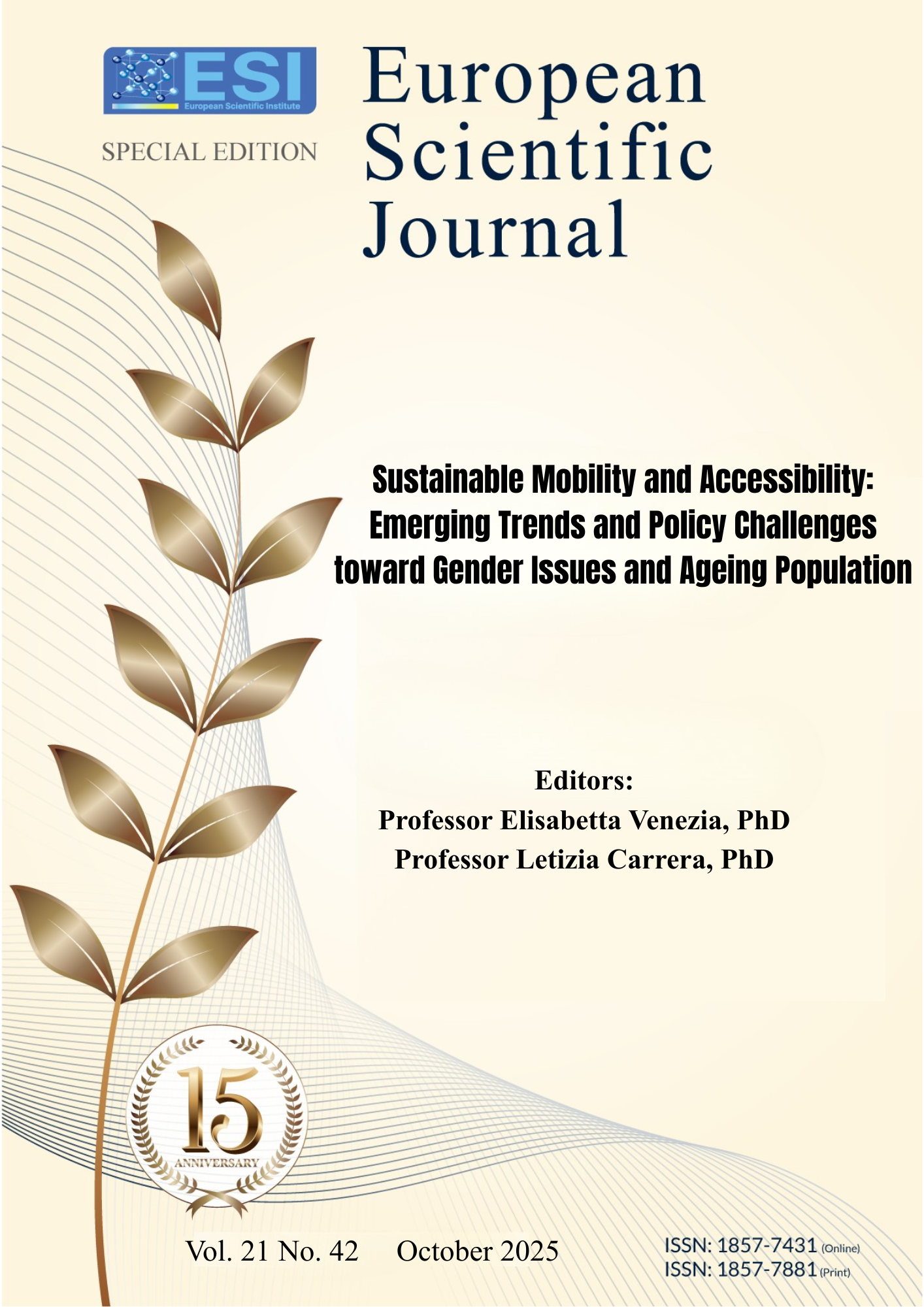Diversity in Climate Negotiations: Lessons for Inclusive Urban Planning and Smarter Mobility
Abstract
This paper examines the evolving role of stakeholder diversity in United Nations climate negotiations, with a particular focus on the Conferences of the Parties (COP) under the UNFCCC. Using a qualitative comparative case study method, it analyzes documentation from six key COPs (2009-2024) and three urban planning cases. The study identifies how the inclusion of civil society, youth, indigenous groups, and private sector actors has shaped negotiation dynamics and contributed to broader climate discourse. A key finding is that while stakeholder diversity enhances legitimacy and knowledge sharing, its impact on emission outcomes remains limited without stronger institutional linkages. Drawing on COP documentation and selected case examples, the study identifies key mechanisms of engagement and governance that can inform urban planning and transport strategies. The analysis reveals that structured stakeholder constituencies, as seen in the UNFCCC, offer a transferable model for urban governance. The paper proposes a transferable governance model that adapts multilateral negotiation principles - such as inclusive decision-making, transparency, and knowledge sharing - to local climate resilience efforts. It introduces a conceptual Knowledge Management Framework designed to support cross-sectoral collaboration and evidence-based planning in urban contexts.
Downloads
PlumX Statistics
References
2. Bodansky, D. (2016). International climate change law. Oxford University Press.
3. C40 Cities. (2024, November 29). How cities can help COP30 succeed. https://www.c40.org/news/cities-help-cop30-succeed/ Knowledge Hub: Climate Action in Cities.
4. European Economic and Social Committee (EESC). (2024). Stakeholder participation at COP29: Regional disparities and representation.
5. Held, D., Roger, C., & Nag, E. (2018). Climate governance in the developing world. Polity Press.
6. IPCC. (2022). Climate Change 2022: Impacts, Adaptation and Vulnerability. Sixth Assessment Report.
7. IPCC. (2023). Synthesis Report of the Sixth Assessment Report. Intergovernmental Panel on Climate Change.
8. Jancovici, J. (2019). CO₂ and climate: What the numbers really say. Retrieved from https://www.co2.earth/monthly-co2
9. Keeling, C. D., Bacastow, R. B., & Whorf, T. P. (1976). Atmospheric CO₂ variations at Mauna Loa Observatory.
10. Mensah, J. (2019). Sustainable development: Meaning, history, principles, pillars, and implications for human action. Environment, Development and Sustainability, 21(2), 1–17.
11. Meuleman, L. (2013). Transgovernance: The quest for governance of sustainable development. Chapter 2: Metagovernance: Cultural diversity and sustainability.
12. Nasiritousi, N., Hjerpe, M., & Linnér, B. O. (2016). The roles of non-state actors in climate change governance: Understanding agency through governance structures. International Environmental Agreements, 16(1), 1–18.
13. NOAA Global Monitoring Laboratory. (2022). Monthly CO₂ at Mauna Loa. Retrieved from https://www.co2.earth/monthly-co2
14. Olbrisch, M. (2012). Stakeholder participation in climate negotiations: Lessons from the UNFCCC. Climate Policy Journal, 12(3), 345–360.
15. Stockwell, B., Peters, G. P., & Le Quéré, C. (2021). Tracking progress toward climate goals. Nature Climate Change, 11(9), 738–745.
16. UNECE. (2010). Copenhagen Accord and its implications. United Nations Economic Commission for Europe.
17. UNFCCC. (1997). Kyoto Protocol to the United Nations Framework Convention on Climate Change.
18. UNFCCC. (2015). Paris Agreement. United Nations Framework Convention on Climate Change.
19. UNFCCC. (2021). COP26 Outcomes Report. United Nations Framework Convention on Climate Change.
20. UNFCCC. (2024). COP29 Participation Report. United Nations Framework Convention on Climate Change.
21. UN-Habitat. (2022). World Cities Report: Envisioning the Future of Cities. United Nations Human Settlements Programme.
22. Vihma, A., Mulugetta, Y., & Karlsson-Vinkhuyzen, S. (2013). Negotiating climate cooperation: The role of non-state actors. Climate Policy, 13(5), 1–15.
Copyright (c) 2025 Yvette Ramos

This work is licensed under a Creative Commons Attribution 4.0 International License.








